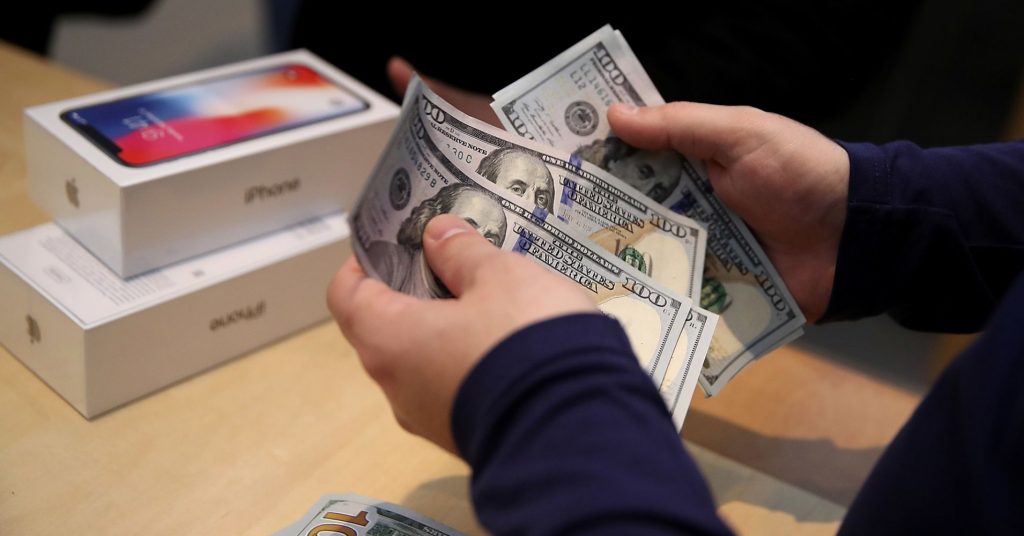
FILE PHOTO – People walk past an electronic board displaying various Asian countries’ stock price index and world major index outside a brokerage in Tokyo, Japan, August 21, 2015. REUTERS/Issei Kato/File Photo
November 6, 2018
By Hilary Russ
NEW YORK (Reuters) – U.S. shares rose on Tuesday while the dollar held steady as Americans went to the polls in elections that could shift the balance of power in Congress.
Treasury yields rose modestly as more supply came to market and spurred selling. Traders also awaited clues about the Federal Reserve’s potential interest rate increases when policymakers meet on Wednesday and Thursday.
Treasury supply has been growing to fund a widening federal budget deficit, the result of the massive tax cut enacted in December and a spending agreement reached in February.
MSCI’s gauge of stocks across the globe <.MIWD00000PUS> gained 0.12 percent.
The congressional elections mark the first major test of President Donald Trump’s polarizing personality and hardline policies on taxes, trade and immigration. If his Republican party loses control of the House of Representatives or the Senate, Democrats would be able to put the brakes on his agenda.
Opinion polls show Democrats have a good chance of winning a majority in the House.
“Unlike the U.S. presidential election or the UK’s Brexit referendum, the upcoming U.S. elections are not a binary event,” said Yasuo Sakuma, chief investment officer at Libra Investments. “So it’s unlikely to send stocks significantly in one direction, apart from initial quick reactions.”
European shares slipped on disappointing corporate earnings and caution ahead of the U.S. election results. Politics weighed on Italian stocks, and oil prices fell as investors digested exemptions to the newly restored U.S. sanctions on Iranian oil.[.N]
The pan-European STOXX 600 index <.STOXX> lost 0.26 percent.
On Wall Street, the Dow Jones Industrial Average <.DJI> rose 173.31 points, or 0.68 percent, to 25,635.01, the S&P 500 <.SPX> gained 17.14 points, or 0.63 percent, to 2,755.45 and the Nasdaq Composite <.IXIC> added 47.11 points, or 0.64 percent, to 7,375.96.
“With the Democrats favorites to take control of the House and the Republicans the Senate, the next couple of years may be far more difficult for Trump,” said Craig Erlam, a senior market analyst at Oanda in London. “When you consider how markets have done since his election victory – granted, primarily on the back of tax reforms – it’s easy to see why this may not be the most investor-friendly result.”
The benchmark S&P 500 index has climbed 28 percent since Trump’s election in November 2016, more than under any other president in comparable periods in the past 64 years.
With so much at stake, currency market moves were tight. The dollar hardly moved against the euro <EUR=> and gained some ground against the Japanese yen <JPY=>.
Sterling <GBP=D3> reversed earlier losses in volatile trading on growing hopes of a Brexit deal breakthrough after a British Cabinet meeting.
The dollar index <.DXY>, which tracks the greenback against a basket of six major currencies, was flat, with the euro <EUR=> up 0.09 percent to $1.1416.
The yen weakened 0.23 percent versus the greenback at 113.47 per dollar.
Italian shares <.FTMIB> were essentially flat, despite frayed nerves in Italy after euro zone finance ministers called on Rome to change its budget to conform with European Union rules at a meeting late on Monday.
Oil prices sank, with U.S. crude futures sliding to an eight-month low, as Iran said it had so far been able to sell as much oil as it needed to after Washington granted sanction waivers to top buyers of Iranian oil.
U.S. crude <CLc1> fell 1.46 percent to $62.18 per barrel and Brent <LCOc1> was last at $72.07, down 1.5 percent on the day.
“The details on the Iran sanctions waivers are trickling out, and it appears much more Iranian oil will remain on the market in the near-term than previously thought,” said John Kilduff, a partner at Again Capital Management in New York.
Both oil benchmarks have slid more than 15 percent since hitting four-year highs in early October.
(Reporting by Hilary Russ in New York; Additional reporting by Marc Jones, Helen Reid, Saikat Chatterjee and Shadia Nasralla in London; Sruthi Shankar in Bengaluru; Kate Duguid, Stephanie Kelly and Richard Leong in New York; Editing by Bernadette Baum, Leslie Adler and Richard Chang)

